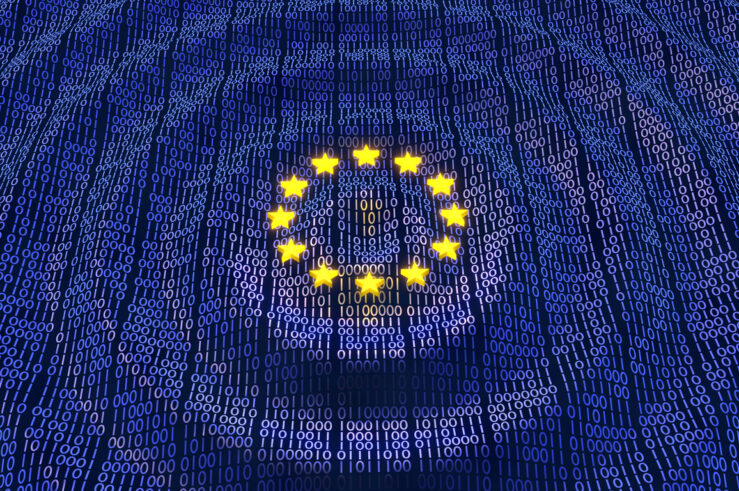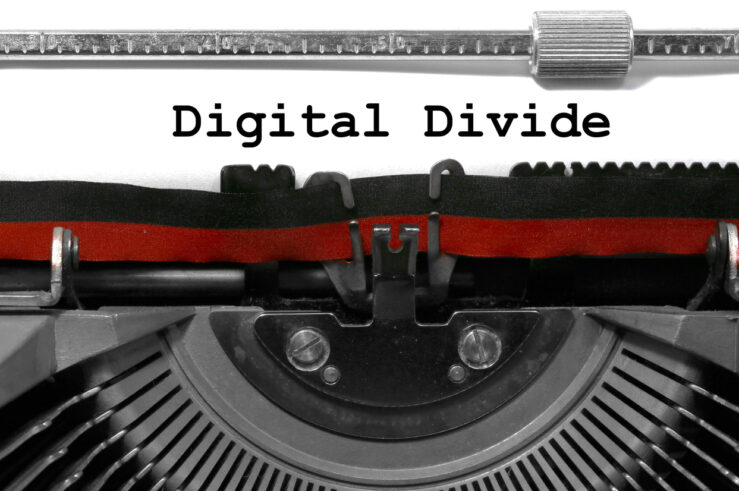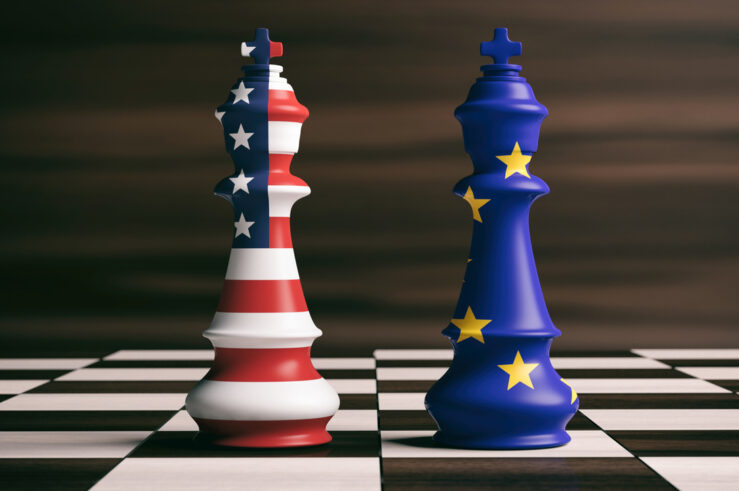The Modern Video Marketplace Does Not Need Help From the FCC
The Federal Communications Commission (FCC) is no stranger to undertaking controversial and potentially counterproductive regulatory projects. The commission’s digital-discrimination proceeding is expected to continue in November, and FCC Chair Jessica Rosenworcel just announced that the FCC will revive the warmed-over corpse of the 2015 Open Internet Order. This latter item highlights how the FCC’s Democratic ... The Modern Video Marketplace Does Not Need Help From the FCC
The AI Act and Regulatory Overaggregation
It appears that the emergence of ChatGPT and other artificial-intelligence systems has complicated the European Union’s efforts to implement its AI Act, mostly by challenging its underlying assumptions. The proposed regulation seeks to govern a diverse and rapidly growing AI landscape. In reality, however, there is no single thing that can be called “AI.” Instead, the category comprises ... The AI Act and Regulatory Overaggregation
Twitter v. Taamneh and the Law & Economics of Intermediary Liability
The Senate Judiciary Committee’s Subcommittee on Privacy, Technology, and the Law will host a hearing this afternoon on Gonzalez v. Google, one of two terrorism-related cases currently before the U.S. Supreme Court that implicate Section 230 of the Communications Decency Act of 1996. We’ve written before about how the Court might and should rule in ... Twitter v. Taamneh and the Law & Economics of Intermediary Liability
A Few Questions (and Even Fewer Answers) About What Artificial Intelligence Will Mean for Copyright
Not only have digital-image generators like Stable Diffusion, DALL-E, and Midjourney—which make use of deep-learning models and other artificial-intelligence (AI) systems—created some incredible (and sometimes creepy – see above) visual art, but they’ve engendered a good deal of controversy, as well. Human artists have banded together as part of a fledgling anti-AI campaign; lawsuits have ... A Few Questions (and Even Fewer Answers) About What Artificial Intelligence Will Mean for Copyright
Does the DOJ’s Approach in Gonzalez Point the Way Toward Section 230 Reform?
Later next month, the U.S. Supreme Court will hear oral arguments in Gonzalez v. Google LLC, a case that has drawn significant attention and many bad takes regarding how Section 230 of the Communications Decency Act should be interpreted. Enacted in the mid-1990s, when the Internet as we know it was still in its infancy, ... Does the DOJ’s Approach in Gonzalez Point the Way Toward Section 230 Reform?
GDPR Decision Against Meta Highlights that Privacy Regulators Don’t Understand ‘Necessity’
The €390 million fine that the Irish Data Protection Commission (DPC) levied last week against Meta marks both the latest skirmish in the ongoing regulatory war on the use of data by private firms, as well as a major blow to the ad-driven business model that underlies most online services. More specifically, the DPC was ... GDPR Decision Against Meta Highlights that Privacy Regulators Don’t Understand ‘Necessity’
What Do Twitter’s Struggles with CSAM Mean for Section 230 Reform?
Twitter has seen a lot of ups and downs since Elon Musk closed on his acquisition of the company in late October and almost immediately set about his initiatives to “reform” the platform’s operations. One of the stories that has gotten somewhat lost in the ensuing chaos is that, in the short time under Musk, ... What Do Twitter’s Struggles with CSAM Mean for Section 230 Reform?
FCC Auctions and the Benefits of Unlicensed Spectrum
What should a government do when it owns geese that lay golden eggs? Should it sell the geese to fund government programs? Or should it let them run wild so everyone can have a chance at a golden egg? That’s the question facing Congress as it considers re-authorizing the Federal Communications Commission’s (FCC’s) authority to ... FCC Auctions and the Benefits of Unlicensed Spectrum
How Not to Use Industrial Policy to Promote Europe’s Digital Sovereignty
The concept of European “digital sovereignty” has been promoted in recent years both by high officials of the European Union and by EU national governments. Indeed, France made strengthening sovereignty one of the goals of its recent presidency in the EU Council. The approach taken thus far both by the EU and by national authorities ... How Not to Use Industrial Policy to Promote Europe’s Digital Sovereignty
Commerce Committee Fails to Correct Major Deficiencies in House Privacy Bill
Having earlier passed through subcommittee, the American Data Privacy and Protection Act (ADPPA) has now been cleared for floor consideration by the U.S. House Energy and Commerce Committee. Before the markup, we noted that the ADPPA mimics some of the worst flaws found in the European Union’s General Data Protection Regulation (GDPR), while creating new ... Commerce Committee Fails to Correct Major Deficiencies in House Privacy Bill
To Close the Digital Divide, Broadband Infrastructure Funds Must Be Spent Efficiently
States seeking broadband-deployment grants under the federal Broadband Equity, Access, and Deployment (BEAD) program created by last year’s infrastructure bill now have some guidance as to what will be required of them, with the National Telecommunications and Information Administration (NTIA) issuing details last week in a new notice of funding opportunity (NOFO). All things considered, ... To Close the Digital Divide, Broadband Infrastructure Funds Must Be Spent Efficiently
US-EU Agreement Hopes to Keep Transatlantic Data Flowing
Though details remain scant (and thus, any final judgment would be premature), initial word on the new Trans-Atlantic Data Privacy Framework agreed to, in principle, by the White House and the European Commission suggests that it could be a workable successor to the Privacy Shield agreement that was invalidated by the Court of Justice of ... US-EU Agreement Hopes to Keep Transatlantic Data Flowing














